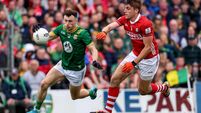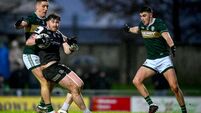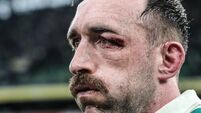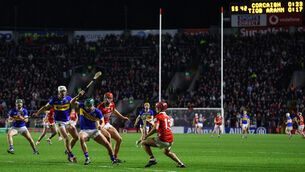A night on the town can sometimes be the right call for players

One of the interesting contrasts to emerge from the recent The Toughest Trade programmes was Brendan Maher’s discovery that anyone who has asked them will know: most pros drink in-season — in moderation.
Speaking of his experience with the Adelaide Strikers, Maher observed, “One thing came up, that they would have a few beers after each game… I said ‘There’s no way we’d do this in the GAA. If you even have a beer two or three months before a game, you’d nearly be lambasted for it.”












